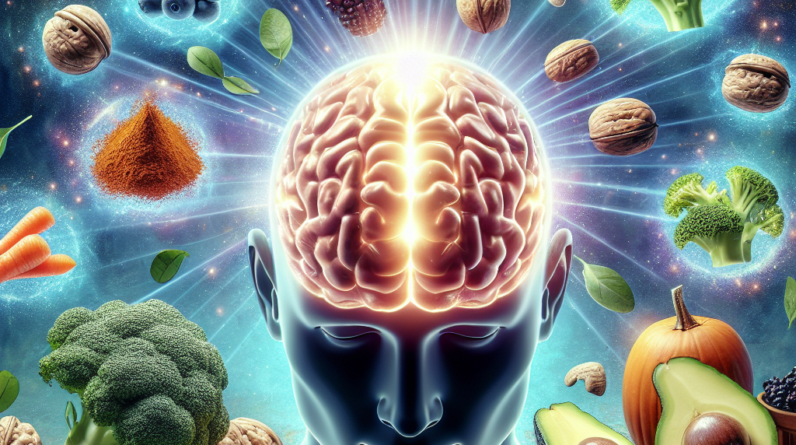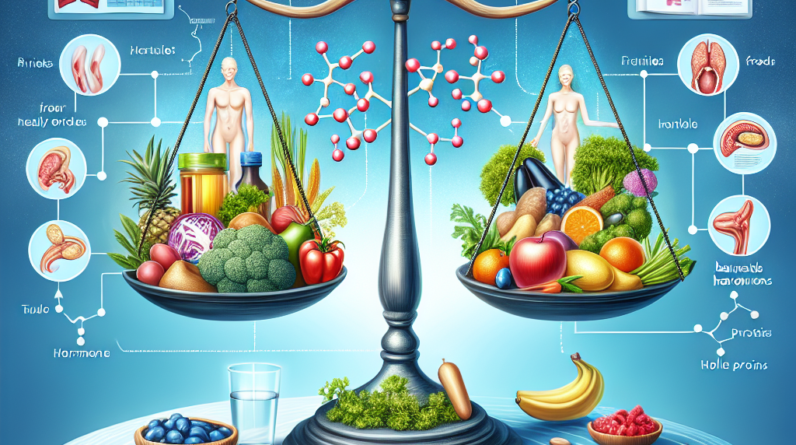
Embrace Omega-3 Fatty Acids
Why Omega-3s Matter
I’ve always been fascinated by how certain foods can impact our brains. One thing I learned is that omega-3 fatty acids are crucial for mental clarity. These healthy fats are primarily found in fish, like salmon and mackerel, as well as in walnuts and flaxseeds. Consuming them regularly can help reduce inflammation and improve brain health.
Get a Huge Discount and Bonus! Try for 90 Days Risk Free
On days when I include omega-3 rich foods in my diet, I feel sharper and more focused. Scientific studies back this up, indicating that omega-3s may even help in reducing symptoms of depression and anxiety, making them a win-win for mental clarity!
So, whether you whip up a delicious fish dinner or toss some walnuts into your salad, consider how easy it is to give your brain a boost. It’s one of the simplest changes I made, and I can absolutely vouch for its effectiveness!
Incorporating Omega-3s Into Your Diet
Alright, let’s talk practical tips! One of my go-to meals is a salmon bowl, topped with avocado and some leafy greens. Not only do I enjoy the flavors, but I also feel like I’m fueling my brain in a big way. You can easily grill or bake some salmon and serve it with a side of vegetables for a quick, nutritious meal.
If you’re not into fish, don’t sweat it! There are plenty of plant-based sources of omega-3s. Flaxseed meal can be added to smoothies or used in baking. Just a tablespoon can do wonders for your cognitive function and overall nutrition. Seriously, try it out next time you’re making a smoothie; you won’t taste it!
Lastly, I recommend investing in high-quality fish oil supplements if you don’t get enough omega-3s from your diet. Just make sure to choose reputable brands that ensure purity and potency. Your brain will thank you!
Side Effects and Considerations
While omega-3s are generally safe, it’s important to be mindful of the source. Some fish can contain high levels of mercury, which isn’t good for mental clarity or health in general. I’ve made it a point to choose wild-caught fish over farmed whenever possible—it just feels better knowing I’m eating clean.
Also, take note of any allergies or dietary restrictions before diving headfirst into omega-3-rich foods. If you have certain health concerns, consulting with a healthcare provider or nutritionist is a smart move. It’s all about finding what works for you!
Incorporating omega-3s is a fantastic start, but it’s just one piece of the puzzle. The key is to continuously seek a balanced approach to nutrition that also resonates with you personally.
Get a Huge Discount and Bonus! Try for 90 Days Risk Free
Harness the Power of Antioxidant-Rich Foods
The Brain Benefits of Antioxidants
Let’s shift gears for a moment to talk about antioxidants. These little guys are like bodyguards for your brain, protecting it from oxidative stress. Foods like berries, dark chocolate, and green tea are packed with antioxidants and have become staples in my diet.
When I munch on some blueberries or sip on green tea, I can feel my brain coming alive. Research suggests that these foods can enhance cognitive function and memory, which I absolutely appreciate when I’m knee-deep in work or study sessions.
Antioxidants don’t just protect; they also promote better communication between brain cells, making it easier for me to think clearly and creatively. That’s why they’re such an essential part of my brain food lineup!
Delicious Ways to Add Antioxidants
Getting antioxidants into my meals is a breeze. I love adding a handful of mixed berries to my morning yogurt or oatmeal. It’s not only colorful but also super nourishing. Throwing in some nuts or seeds can make it even more satisfying! Yum!
Need a Serious Energy BOOST? Huge Discount Try for 90 Days Risk Free
Another fun way to enjoy these powerhouse foods is by mixing up smoothies. Toss in some spinach (yes, it’s loaded with antioxidants too), a banana, and a cup of berries, and you’ve got a smoothie that not only tastes great but works wonders for your brain!
Dark chocolate has also become my guilty pleasure; a couple of squares after dinner really satisfies my sweet tooth while boosting my mood and mental clarity. It’s all about balance, and I find joy in the little things!
Potential Pitfalls to Avoid
Be aware that not all antioxidant-rich foods come without hidden pitfalls. Some processed snacks may claim to be “antioxidant-rich” but are loaded with additives and sugar. Always read labels and opt for whole foods whenever possible!
Also, while it’s great to indulge in antioxidant treats like dark chocolate, moderation is key. It’s easy to overdo it, so I’ve learned to enjoy it in small amounts to keep my habits healthy.
Finally, ensure variety in your diet to reap the full spectrum of benefits. Don’t just stick to one or two types of antioxidant-rich foods; explore and have fun with different options! Keep your meals colorful and exciting—your brain will love the change!
Choose Whole Grains for Sustained Energy
The Role of Whole Grains
I can’t stress enough how important whole grains are for mental clarity. Unlike refined grains, whole grains like brown rice, quinoa, and whole wheat bread provide a steady source of energy for our brains. They keep our blood sugar levels stable, avoiding those annoying energy crashes.
When I switched to whole grains, I noticed a significant difference in my energy levels and focus. There’s something about knowing I’m eating food that supports my brain function throughout the day. It feels empowering!
Not only that, but whole grains also contain essential nutrients like B vitamins, which are vital for brain health. So when I’m fueling up on quinoa or brown rice, I’m really giving my brain what it craves.
Cooking with Whole Grains
Incorporating whole grains into my meals has never been easier. One of my favorite dishes is a quinoa salad loaded with veggies and a light dressing. It’s fresh, delicious, and keeps my brain buzzing with energy!
If I’m in a hurry, I’ll boil some brown rice and pair it with whatever protein and veggies I have on hand. I find it super versatile and so satisfying. Plus, I can whip it up in no time, which is essential when I have a busy day ahead.
Another simple swap is replacing white bread with whole-grain bread for sandwiches. It enhances the flavor and texture while boosting the nutritional value. Trust me, once you try it, you probably won’t want to go back!
Avoiding Processed Grains
When it comes to grains, I’ve learned to watch out for processed options that often strip away the nutrients. Foods like white bread or sugary cereals might facilitate quick energy, but they’re not doing my brain any favors.
Good Health Solution is Easier Than Most People Think!
Take a Look for Yourself!
I make it a habit to read labels and choose options that list whole grains as the first ingredient. It’s a simple change that can lead to big improvements in how I feel throughout the day.
Also, trying new whole grains like farro or barley has been a fun adventure! Each grain brings different flavors and textures to my meals—who knew eating healthy could be so enjoyable?
Stay Hydrated for Optimal Brain Function
The Importance of Hydration
Alright, let’s talk about something that’s often overlooked—hydration. From my experience, staying hydrated is crucial for keeping mental clarity on point. Our brains are made up of about 75% water, so it makes sense that dehydration can lead to fatigue and poor concentration.
I’ve had days where I realized my brain fog was simply due to not drinking enough water. It’s easy to forget, especially when we’re busy, but keeping a water bottle nearby has become a game changer for me.
Plus, if you add some lemon or mint to your water, it makes staying hydrated feel a little fancier, and trust me, your brain will definitely appreciate the extra care!
Signs of Dehydration
Some signs of dehydration can sneak up on you. I used to think fatigue was just a part of my long workdays, but now I know it could also be because I wasn’t hydrating enough. If you’re feeling sluggish or have a headache, it might be time to reach for that water bottle!
Another tell-tale sign for me is dry mouth. If I become aware of that feeling, I make it a point to drink more fluids. It’s all about listening to my body and responding with what it needs.
Staying alert and aware of these signs helps make hydration a priority. Trust me, when I implement these simple strategies, I feel much sharper and ready to conquer the day!
Creative Ways to Increase Hydration
To keep things exciting, I love adding variety to my hydration tactics. Herbal teas are a fantastic way to stay hydrated and can be a cozy afternoon pick-me-up. They can also be enjoyed hot or cold, making it a great option for any season.
Have you ever tried fruit-infused water? It’s so refreshing! I like tossing in some strawberries and basil or cucumber and lemon for an extra zing. It’s a fun way to switch things up and keep me drinking more throughout the day.
Lastly, don’t forget about hydration from food! Foods like cucumbers, watermelon, and oranges can add to your hydration while providing essential nutrients. My favorite summer snack is a refreshing watermelon salad; it’s light, hydrating, and downright tasty!
Mind Your Portions and Meal Timing
The Impact of Portion Control
What I’ve found super helpful is watching portion sizes during meals. Eating too much can lead to that heavy, sluggish feeling that clouds my brain’s clarity. Now, I focus on moderation and balance instead.
I make sure to fill half my plate with veggies, a quarter with lean protein, and the last quarter with whole grains. This method not only helps me stay full and satisfied but also keeps my energy levels stable without the crash.
Portion control has been a major key for maintaining my clarity and sharpness. When I’m mindful about how much I consume, I feel more energized and mentally agile throughout the day.
Understanding Meal Timing
Another great strategy I’ve implemented is timing my meals. Instead of eating three large meals, I’ve switched to having smaller meals throughout the day. This approach keeps my energy levels up and my brain alert!
For instance, I like to have a hearty breakfast packed with protein and whole grains to kickstart my day. Then, I follow up with healthy snacks like almonds or yogurt. It’s amazing how much this positively affects my focus during work hours.
Additionally, I try to avoid heavy meals right before tackling challenging tasks or studying. Instead, I’ll opt for lighter fare that won’t drag me down. It’s a simple trick that makes a world of difference!
Living a Mindful Eating Lifestyle
Being present while eating is something I’ve found to be deeply impactful on my mental clarity. When I sit down for meals, I try to turn off distractions and focus solely on my food. It helps me appreciate my meals and prevents overeating.
Sometimes, I’ll engage all my senses—I’ll take a moment to look at the colors on my plate, smell the aroma, and savor the different flavors. This mindful eating practice not only enhances my meals but can also boost feelings of satisfaction.
In the end, finding a balance that works for you is key. Whether it’s adjusting portion sizes or the timing of your meals, every small change counts toward achieving better mental clarity!
FAQ
1. What are some of the best brain foods to improve mental clarity?
Some of the top brain foods include omega-3 fatty acids (found in fish and walnuts), antioxidant-rich foods (like berries and dark chocolate), whole grains, and plenty of water to stay hydrated.
2. How do antioxidants help with brain function?
Antioxidants protect the brain from oxidative stress and promote better communication between cells, which can enhance cognitive function, reduce memory loss, and improve overall mental clarity.
3. What are the symptoms of dehydration affecting mental clarity?
Common symptoms include headaches, fatigue, dry mouth, and general sluggishness. Staying hydrated is essential to keep your brain functioning optimally.
4. How can I easily incorporate whole grains into my diet?
You can swap refined grains for whole grains in meals, such as choosing brown rice over white rice or whole-grain bread. Quinoa, farro, and oatmeal are also great additions!
5. What is mindful eating and how can it improve my mental clarity?
Mindful eating involves being present and fully engaged while eating. It helps you appreciate your meals, prevents overeating, and allows your body to recognize its hunger cues, thus supporting better mental clarity.








